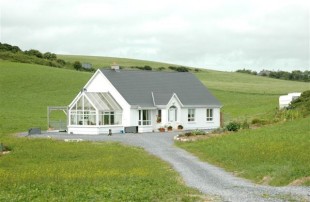Celebrate St Patrick’s Day in Irish property
 For anyone whose ancestry is Irish, property in the Republic of Ireland could be the perfect way to honour their heritage each March.
For anyone whose ancestry is Irish, property in the Republic of Ireland could be the perfect way to honour their heritage each March.
Each year around March 17th, the patron saint of Ireland is remembered with a day of festivities.
In recent years the American celebrations – and particularly New York’s parades – have become more associated with St Patrick’s Day for many people than Ireland itself.
However, it’s hard to contend with the festivities that take place back in the Republic of Ireland itself, as anyone relocating to Irish property is likely to discover.
St Patrick’s Day celebrations
St Patrick’s Day is celebrated for a number of reasons; worldwide, it is often seen as a reason to party, with food and drink high on the agenda and the colour green well represented.
For Roman Catholics in Ireland, it is a religious event – a first class feast of enough importance that, should it fall on a Friday, it allows meat to be consumed during Lent.
In 2008, the official date was shifted slightly to avoid St Patrick’s Day colliding on the calendar with Easter solemnities – the last time this issue will be faced until 2160.
For many people, the religious elements of the date are less important than the excuse to party – and property in the Republic of Ireland could provide those people with the ideal starting point for their day’s activities.
A number of cities across the country join in the secular celebrations each March, something they have done for more than a century.
March 17th is not the only date on which St Patrick’s Day is celebrated, although it is usually the date that it is officially observed.
The festivities can last as long as a week, with events scheduled every day in the run-up to March 17th itself, putting Irish property at the heart of the party each spring.
St Patrick’s Day 2010
Tourism Ireland reveals that the 2010 festivities surrounding St Patrick’s Day in Dublin are actually scheduled to begin on March 12th and cover a six-day period leading up to the official date itself.
With around 4,000 performers expected to appear during the celebrations, people with their own property in Ireland could stand a better chance of finding somewhere to stay than those who have not yet booked holiday accommodation.
Anyone who does head to Dublin for March 12th-17th can expect a carnival atmosphere with street performers, theatre and music.
Further south, in Cork, a “fiesta of colours and flights of fancy” is promised as excitement grips the city for the celebration of Ireland’s patron saint.
On the west coast, Galway joins in the fun with its own street performances as a walking parade proceeds through the city for the 107th year.
Irish property – a home from home
Irish property may seem just a skip and a jump away, but there are a few differences between the Republic of Ireland and the UK.
The different currency is one of the most obvious issues, with the euro in use in the Republic of Ireland and pounds sterling used in Great Britain and Northern Ireland.
Even before 2002, when the euro was adopted, the Republic of Ireland had its own currency in the form of the Irish pound or ‘punt’, so exchanging money before heading to Dublin and other cities south of the border has always been necessary.
Closer to the border, some places accept both sterling and euros, making currency concerns less of an issue – just as some Irish bars in the UK accept euros anyway.
And of course, unlike many countries of the world, Ireland has English as its most frequently used language – although Irish is constitutionally also one of its official languages.